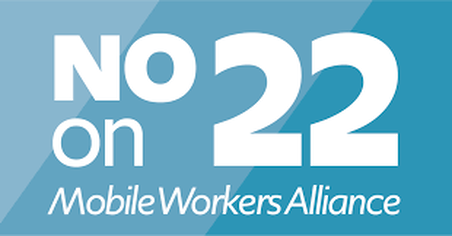"Driver delivery services have been on the rise as of late, with covid-19 allowing different OPPORTUNISTS for people to find both work and food, but what is prop 22 about?"-Bryson saunders-beckles, Grade 10
Food is one of the most important aspects of our lives. What food you eat, how it was grown or prepared, and where you get it. Sometimes you go to the grocery store, and you feel in the mood to cook. Or you’ve had a rough day, and you’re tired, so you decide to order something online to get it to your home. But that was before coronavirus forced us inside, and now more often than not, you order food more often.
If so, you are not alone. Driver-based delivery was there, but it was not as big as it is now. According to emarketer.com, , GrubHub (along with UberEats and DoorDash) has seen a 35% increase in customers over quarantine: from 20.3 million people to 27.5 million in the span of one year alone. And it’s most likely only going to get bigger from there.
Along with this new development, there was also Prop 22, the new proposition that both Uber and Lyft collectively spent $200 MILLION dollars on to make sure that it passed. (It did pass.) But what does Prop 22 actually do? Well, the idea that was advertised for Prop 22 was that it would exempt companies from having to provide health care, higher wages, and better hours as contract-based workers. What it actually does is make its employees independent contractors, and gives them vehicle insurance, minimum earnings, and healthcare subsidies. Employees lose things like minimum wage, overtime, and unemployment insurance, as well as worker’s compensation. App-based drivers are somewhat split on how they feel about Prop 22. Some feel that as an employee, they would lose flexibility, while others feel that they will actually lose money in their salary.
What are your thoughts on the matter?
If so, you are not alone. Driver-based delivery was there, but it was not as big as it is now. According to emarketer.com, , GrubHub (along with UberEats and DoorDash) has seen a 35% increase in customers over quarantine: from 20.3 million people to 27.5 million in the span of one year alone. And it’s most likely only going to get bigger from there.
Along with this new development, there was also Prop 22, the new proposition that both Uber and Lyft collectively spent $200 MILLION dollars on to make sure that it passed. (It did pass.) But what does Prop 22 actually do? Well, the idea that was advertised for Prop 22 was that it would exempt companies from having to provide health care, higher wages, and better hours as contract-based workers. What it actually does is make its employees independent contractors, and gives them vehicle insurance, minimum earnings, and healthcare subsidies. Employees lose things like minimum wage, overtime, and unemployment insurance, as well as worker’s compensation. App-based drivers are somewhat split on how they feel about Prop 22. Some feel that as an employee, they would lose flexibility, while others feel that they will actually lose money in their salary.
What are your thoughts on the matter?


